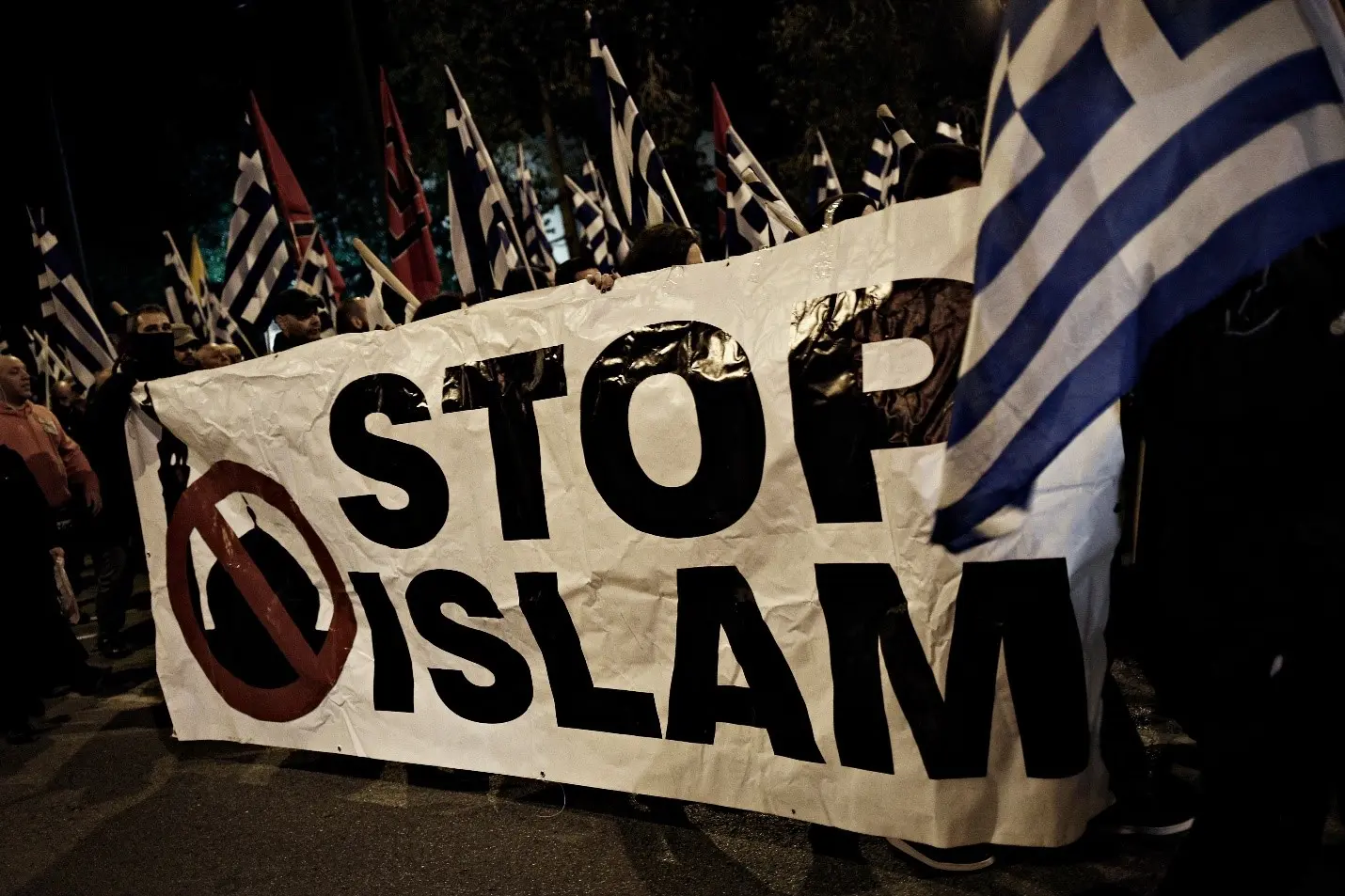In a surprising move, and after the far-right National Rally (RN) party dominated in the European elections in France, French President Emmanuel Macron announced the dissolving of parliament and called for snap elections. The move is seen as very risky, with many believing that it will further embolden the far-right whose chances of winning a parliamentary absolute majority exceeds that of Macron’s coalition. Nevertheless, Macron’s decision is not without some strategic planning. Nonetheless, whether the French president succeeds in his plan or not, watching French politics for the upcoming three years will be definitely be interesting.
Has Macron Lost His Mind?
Actually, not yet, while many commentators point out that Macron’s move to dissolve parliament and call for early elections is very daring and risky, and that the result of a snap election is far from certainty. However, there is still some sense to the president’s decision. Macron is employing the same strategy he used in the 2022 election when he defeated RN’s Marine Le Pen. He is primarily banking on the far-right not securing a majority in the national election. Unlike European elections, the French parliamentary elections require a candidate to win 50% in the first round or compete in a run-off. This makes it considerably harder for a far-right candidate to win a seat in the national parliament. Since Brussels is often seen as a distant issue, the European elections are typically where protest votes are most prominent. Conversely, the legislative election, with its two-round system on June 30 and July 7, historically benefits more traditional parties, as voters from both the left and right usually unite behind the mainstream candidate to defeat the far-right.
Additionally, Macron is not risking his office in the Elysée but he is risking ruling with a right-wing majority in parliament. At this point, Macron’s resignation is not even discussed. One of his advisors mentioned that Macron’s intent in calling early elections was to win. “I’m the only one who isn’t risking anything” Macron was quoted as saying. However, he is risking his ability to govern effectively because during a period of cohabitation, where a divided government rules, the French president must adopt a more discreet role, similar to those in parliamentary systems. The president holds certain powers, such as commanding the armed forces, handling foreign policy, ratifying international treaties, and accrediting ambassadors. Nevertheless, control over domestic policies lies with the party holding the absolute majority in the National Assembly. If the president disagrees with a law, he can refer the matter to the Constitutional Council or request a second reading from the National Assembly. Ultimately, if the Constitutional Council declares itself incompetent or if the MPs pass the law again, the president must sign it. The political uncertainty in the current situation could also lead Macron to fully utilize the executive powers granted by the French Constitution, potentially weakening the legislature’s role.
French System 101
To fully understand what Macron will face following his decision, we need to clarify the potential outcomes of the upcoming snap election. In the forthcoming parliamentary elections, any party’s goal is to secure at least 289 seats to achieve an absolute majority in the National Assembly, allowing them to implement their program without negotiating with other parties. If Emmanuel Macron’s Renaissance party (RE) or the Ensemble (ENS) coalition wins, the president can reappoint Gabriel Attal as his prime minister. However, polls indicate this is unlikely as Macron’s faction trails behind the left-wing New Popular Front (NFP) coalition and Marine Le Pen’s RN.
The second scenario is if a party gains a relative majority, meaning it becomes the largest party without an absolute majority, it will need to form alliances to pass laws. This was the case for Macron’s party, which held 230 seats in the dissolved parliament. The third potential outcome is if no party wins a majority and no ruling coalition is formed, leading to governmental deadlock. This would leave France in stagnation, and the only solution in this unprecedented scenario might be the president’s resignation. The fourth possible outcome is cohabitation. If another party, such as the far-right RN or the left-wing NPF, gains an absolute majority, the president will have to appoint a Prime Minister from the winning coalition.
Nonetheless, polls show that none of the parties running for elections or any coalition will gain an absolute majority. However, it is probably that, and especially given the nature of the French electoral system requiring a two-round voting process, that coalitions will be formed based on the first round’s results.
Is It Only About the Far-Right?
While it has always been about the far-right, Macron’s intention from the beginning was to set Jordan Bardella, the RN candidate for prime minister, up for failure ahead of France’s 2027 Presidential Elections. Lately, Macron started calling the public’s attention to the dangers of a far-left government. On Monday, Macron warned that either a far-right or far-left win could lead to civil war. Macron’s concerns over the far-right are not new, however, his newly emerged anxiety over the far-left could be due to the fact that NPF has been polling ahead of his own coalition. The far-left’s quick formation of a coalition was surprising, however, serious doubts remain about the coalition’s long-term durability, as profound differences between the parties threaten to outweigh their common goals.
The far-right then remains the first and foremost concern for the anxious French president, it was the RN triumph in the European elections that led him to take his decision from the very beginning. The RN has never seemed as close to power as today, but why is it so concerning to have the RN ruling France?
On the European level, Le Pen has softened her image and moderated her Eurosceptic rhetoric, however, her party remains on the edges of mainstream politics on several issues; the RN has repeatedly abstained from voting on aid to Ukraine, aims to eventually leave NATO’s integrated command, and has opposed significant EU legislative measures in recent years.
If the RN secures an absolute majority, Emmanuel Macron would be compelled to appoint the RN’s candidate, Jordan Bardella as prime minister. While Macron is not constitutionally obligated to do so, he would have no other viable option, as any alternative would likely result in a vote of no confidence. Consequently, he needs a government that holds a majority in parliament to pass key legislation, including the highly unpopular pension reform, the president and his prime minister have previously relied on constitutional tools to bypass a parliamentary vote. Currently struggling to govern without a parliamentary majority, Macron could face even greater headache over the remaining three years of his term.
Finally, Macron’s decision isn’t entirely without calculation; he is betting that the far-right won’t achieve the absolute majority needed to form a government. This would result in the RN governing within a coalition, potentially leading to a stalemate in decision-making. Crucially, if the far-right proves to be incompetent, Marine Le Pen could become politically marginalized ahead of the 2027 presidential Election. Finally, it seems that the next three years will be anything but easy for Macron.
References
Canton, Sergio. “France Faces Political Paralysis: Four Scenarios for the Elections.” euronews, 2024. https://www.euronews.com/my-europe/2024/06/24/how-france-faces-political-paralysis-four-scenarios-for-the-french-elections
Canton, Sergio. “French Vote: Is France Headed to a Minority Government?” euronews. Accessed June 2024. https://www.euronews.com/2024/06/25/french-elections-zero-sum-game-is-france-headed-to-a-minority-government
Caulcutt, Clea. “French Election: Your Guide to a Vote That Is Set to Shake the EU and NATO.” POLITICO, June 20, 2024. https://www.politico.eu/article/french-election-far-right-national-rally-nato-eu-emmanuel-macron-marine-le-pen/
Caulcutt, Clea. “Macron Bets the House on Election to Break Far-Right Momentum in France.” POLITICO, June 11, 2024. https://www.politico.eu/article/eu-european-election-results-2024-emmanuel-macron-snap-election-marine-le-pen-national-rally-jordan-bardella-national-assembly/
Chemin, Ariane, and Ivanne Trippenbach. “Comment La Dissolution de l’assemblée Nationale a Fait Son Chemin à l’elysée.” Le Monde.fr, June 10, 2024. https://www.lemonde.fr/politique/article/2024/06/10/comment-la-dissolution-de-l-assemblee-nationale-a-fait-son-chemin-a-l-elysee_6238407_823448.html
Goury-Laffont, Victor. “3 Ways Macron’s Election Punt Could Go Wrong.” POLITICO, June 11, 2024. https://www.politico.eu/article/macron-france-election-european-election-far-right/
Henley, Jon. “Can France’s New Popular Front Overcome Electoral Threat from Far Right?” The Guardian, June 20, 2024. https://www.theguardian.com/world/article/2024/jun/20/can-new-popular-front-france-overcome-electoral-threat-from-far-right
Pateman, Lili, and Romain Geoffroy. “What’s a Cohabitation in French Politics and What Are the Precedents?” Le Monde.fr, June 17, 2024. https://www.lemonde.fr/en/les-decodeurs/article/2024/06/17/what-s-a-cohabitation-in-french-politics-and-what-are-the-precedents_6674967_8.html
Radiemeski, lily. “New Left-Wing Coalition in France Polls Better than Centrists, but Long-Term Durability Is Doubtful.” Courthouse News Service, 2024. https://www.courthousenews.com/new-left-wing-coalition-in-france-polls-better-than-centrist-but-long-term-durability-is-doubtful/














Comments